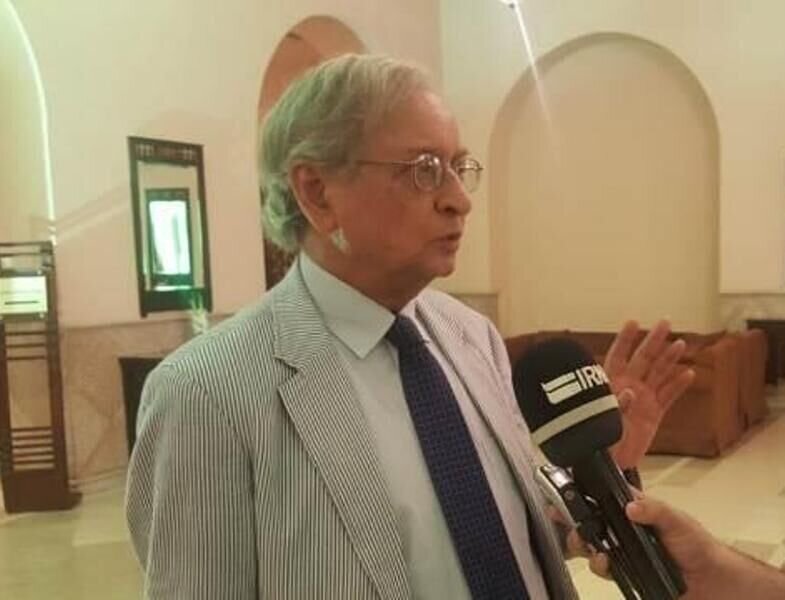EU should side with Iran against U.S.: CISS director

TEHRAN - Ali Sarwar Naqvi, executive director of the Center for International Strategic Studies (CISS), has said that the European Union should side with Iran against the United States’ aggressive approach against Iran.
In an exclusive interview with IRNA on Wednesday, Naqvi said that the U.S. faced a huge humiliation at the United Nations Security Council (UNSC).
“The United States wanted to extend arms embargo on Iran which was rejected by almost all members of the international body,” said the expert.
Naqvi, who served as Pakistan’s ambassador to United Nations Washington, London, Paris, and Brussels from 1970 to 2006, added that the U.S. even failed to get the support of its European allies at the Security Council.
“On one hand they (Americans) do not accept the agreement while on the other they want to invoke a clause of the agreement which they had already rejected, this is strange,” he noted, according to IRNA.
Elsewhere, he said that the U.S. is pursuing an aggressive policy that has compelled its European allies to take independent decisions.
Thirteen council members expressed their opposition on August 21 against triggering snapback mechanism by the U.S., arguing that Washington’s move is void given it is using a process agreed under a 2015 nuclear deal between Iran and world powers that it quit more than two years ago.
Washington has officially informed the UN Security Council it is demanding the restoration of all UN sanctions on Iran, claiming that the U.S. has the legal right to “snap back” UN sanctions even though U.S. President Donald Trump pulled out of the nuclear deal confirmed by the UN Security Council under Resolution 2231.
Other parties to the nuclear deal, including Russia, China, France, Britain, and Germany, have voiced strong opposition to Washington’s push for sanctions on Iran.
U.S. Secretary of State Mike Pompeo has announced that all UN sanctions against Iran will be reinstated on September 20 after the U.S. “activated the snapback mechanism”.
NA/PA
Leave a Comment